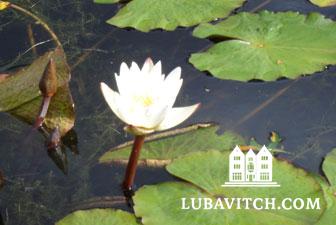Once a year, Chabad representatives–the women–take a four day leave to attend the International Conference of Chabad-Lubavitch Shluchos. This year's conference begins Thursday, Jan. 24th.
(Lubavitch.com/LNS) Perusing the instructions a Chabad leader leaves behind before she attends the annual Shluchos Convention in New York is exhausting. It takes lists, sticky notes by the dozens and several people to cover for one woman at the helm when she takes a weekend off from her work as school principal, Hebrew school director, adult education teacher, mikvah coordinator, women’s group leader, and more, all wrapped into the title of Chabad Shlucha.
So when Chabad representatives switch email to automatic reply, kiss the kids goodbye, board the plane for a weekend away from the endless to-do’s, it’s somewhat surprising that they opt to fill their “me time”… studying.
On day one of the four-day conference that begins on January 24th and brings thousands of Chabad female leadership to Lubavitch World Headquarters in Brooklyn, a women-only Beit Midrash, study center, will open in the convention ballroom. The women will pair up to tackle Chasidic dissertations, interpreting the Hebrew and Yiddish text that references Talmud, Torah and legal codes.
“We are indulging ourselves a little bit,” said Mrs. Michla Schanowitz, a Chabad representative in Chicago and one of the program’s organizers.
Through the eyes of Chabad representative, butting heads and pitting wits over a text of Chasidic philosophy fits into the indulgence category normally associated with massages and manicures. Torah study “is a big part of emotionally and spiritually taking care of yourself,” said Rivky Kaplan, an adult educator in Tzfat, Israel. With all the communal responsibilities sitting squarely on the shoulder of Chabad’s female leadership, it’s hard to come by time to study Torah in depth.
Kaplan joined the chorus pushing for a Beit Midrash after she spent three weeks studying Torah during the summer. The experience “reminded me what my shlichus [mission] was all about.” Organizers turned to veteran educator Rivkah Slonim, of Chabad at Binghampton University in New York to select material for the Beit Midrash session.
Among the main topics will be the Lubavitcher Rebbe’s dissertation on spiritual implications of the spies sent by the Jewish people during their sojourn in the desert to investigate the Promised Land. The spies’ conflicting feelings over leaving the spiritual asceticism of the desert for a life working the land of Israel, parallels the challenges Jewish people, women especially, face in the modern world.
Torah study is always part of the women’s conventions, a Chabad tradition since the passing of the Lubavitcher Rebbe’s wife twenty years ago. However, most sessions are devoted to sharing ideas via workshops and experiences through Chasidic gatherings known as farbrengens. This will be the first time such a large portion of the conference’s limited time frame is devoted to text-based Beit Midrash study.
Cracking the books appeals to Chaya Posner, co-director of Chabad of Rancho Mirage, CA.
“Usually we are on the giving end, not the receiving. An opportunity to study on the level that is challenging to women who spent years learning at a high level is welcome.”
From her home in the desert, Mrs. Posner has her finger on the pulse of a much larger trend, according to Mrs. Schanowitz. A hunger for text-based study pervades the Jewish community, she said, and retailers agree. Over the past ten years, Barnes and Nobles and Borders bookstores around the country have increased shelf space allotted to Jewish texts and commentaries. “These books would not be translated and published if there wasn’t a thirst” or a market for them, said Mrs. Schanowitz.
True to form, the Beit Midrash will not be pure “me time.” The women leaders of Chabad will be honing their skills to slake the thirst for deeper teachings in their home communities. How-to sessions on building challenging Torah classes for their home communities using a variety of preparation and delivery strategies will follow the Beit Midrash sessions.
Mrs. Posner said, “Learning enhances my ability to lead.”

Be the first to write a comment.